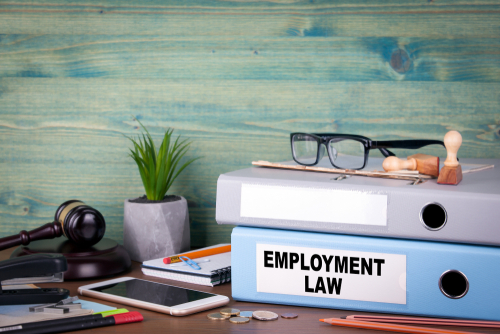

Is it against the law not to give sick pay?
In recent years, many businesses have had to give out more sick pay than usual due to the Covid-19 pandemic. Data from the Office for National Statistics (ONS) reveals the 2022 UK sickness absence rate increased to 2.6%, up 0.7% from the 2019 figure. Therefore, even though the pandemic is in its twilight, employer sick pay law is still just as relevant.
Continue reading to discover if it’s against the law for UK companies not to give sick pay, who’s eligible for sick pay, and more.
Sick pay law for employers UK
While there is no express statutory right to sick leave, providing Statutory Sick Pay (SSP) is a legal requirement for UK employers. It applies to all an organisation’s eligible employees when they’re prevented from working due to illness. All employees, and certain groups of workers, are eligible for Statutory Sick Pay (SSP) as long as they meet the other qualifying conditions, and these groups are classed as employees for the purposes of SSP. The law is broken up into different parts to govern how, when, and why SSP gets allocated.
Employees are entitled to a minimum amount of Statutory Sick Pay, which follows the same guidelines as wages. This means SSP gets paid on the regular payday with tax and National Insurance deducted. Employees also only get SSP for the days they would ordinarily be expected to work, known as ‘qualifying days’.
As of April 2023, the weekly rate of SSP is £109.40p for a maximum of 28 weeks. Payment starts once an employee has been sick for at least four consecutive days, including non-working ones. However, employers will have to pay for these first three days if the employee has received SSP within the last 8 weeks (and this included a three-day waiting period). A day that has been partially worked before an employee becomes ill is not considered a sick day for the purposes of SSP.
However, certain types of employment are subject to different entitlement rules, including directors, agency workers, and educational workers. You can also have a look at the Government SSP calculator.
For the purposes of administering SSP, employers are not allowed to insist on a statement of Fitness to Work, commonly referred to as sick/fit notes, for at least the first seven days of absence. After that time employer may insist on a statutory sick/fit note or other reasonable evidence. In cases of absences of less than seven days, employers should require evidence from the employee of their incapacity to work. This ‘self-certification” can comprise a signed statement from the employee giving the dates and brief description of their incapacity on a form of the employer’s own choosing or the HMRC Form SC2.
Where sick/fit notes are requested for absences of seven days or longer, employees can get them from the following healthcare professionals:
- Doctor or GP
- Occupational therapist
- Registered nurse
- Physiotherapist
- Pharmacist
Employers can’t withhold SSP in the event an employee is late in producing an eligible fit note. Employers also cannot force employees to take annual leave when they’re eligible for sick leave.
Businesses that have become insolvent can pay SSP to employees that were sick during that time. If this is you, you can help your employees by telling them to contact the Statutory Disputes Team.
Employees that have their contract terminated during periods of sickness can claim Employment and Support Allowance as an alternative.
Employee eligibility for Statutory Sick Pay
Employees must meet the following conditions to qualify for SSP:
- Give appropriate notice and proof of illness.
- Possess an employment contract.
- Have done work under said contract.
- Earn a minimum of £123 per week average.
- Has shown evidence of a ‘period of incapacity for work’ (sick for four consecutive days).
It’s possible for an employee to be eligible for SSP from multiple jobs. They can also obtain SSP for one and not the other, due to working conditions. Nevertheless, there are some exceptions that prevent employees qualifying for SSP:
- They’re receiving Statutory Maternity Pay or Allowance
- They were in custody or on strike on the first sick day
- They’re working outside the UK
- They’ve received the maximum amount of SSP (28 weeks)
Access employment law help for employers
Need assistance managing staff absence? The Employment Law Services team are experts when it comes to small business employment law. Advice on effectively and legally managing staff absence is just one area of our professional services for SMEs.
 Advice on Settlement Agreements
Advice on Settlement Agreements Employment Tribunal Representation
Employment Tribunal Representation